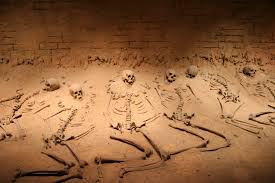What is Anthropology?
Anthropology is the scientific study of people, both historical and present. Anthropology is one of the best humanities subjects, with a wide range of applications around the world.. Anthropology draws on insights from the social and biological sciences, as well as the humanities and physical sciences, to explain the full scope and complexity of civilizations throughout human history. Anthropologists also make comparisons between humans and other species (most often, other primates like monkeys and chimpanzees) to see the commonalities and differences between them and us. It is a broad topic that encompasses nearly every part of human life, including human biology
Branches of Anthropology:
- Cultural Anthropology
- Biological Anthropology
- Linguistic Anthropology
- Archaeological Anthropology
What do Anthropologists do?
- Work in colleges and universities usually spend much of their time in offices, classrooms, and libraries.
- Most anthropologists also do some field work.
- Investigate fossils to learn more about human evolution.
- Investigate the evolution of languages and their relation with each other
- Examine physical artefacts from previous human civilizations, such as tools, clothes, and houses.
- They seek answers to social issues such as urbanisation, population explosion, globalisation, and modernization, as well as their consequences.
- Study populations such as African or American native tribes, people living on isolated Pacific islands, or portions of the population of modern cities.
- They perform field studies and experiments, gathering real-time data for study and solutions to various human problems.
- To validate their hypothesis, they apply the laws of all social sciences and gather evidence from the field for research purposes
Scope of Anthropology
Unfortunately, there are a small number of students in Pakistan who place a high value on anthropology. There are a few universities that offer bachelor's degrees in anthropology. In Pakistan, students generally have to study anthropology at the master's level. Educationists in Pakistan have yet to grasp the significance of this great subject. No census can be performed without the assistance of anthropologists, and no laws can be implemented without accurate statistics on the country's population. Students of degrees in practical subjects such as anthropology, sociology, and social work are now preferred by the PPSC and FPSC. Anthropologists work in university research centres and contribute extensively to interdisciplinary areas such as multicultural studies and ethnic and gender studies. Anthropologists study human culture and evolution from a scientific and humanistic perspective.
Anthropology Job opportunities
Anthropologists can start their career in different sectors, like colleges, universities, government agencies, NGOs, business, health and human services. These graduates can also get jobs at
- Private businesses
- Community organizations
- Museums
- Independent research institutes
- Service organizations
- Media
How to become an anthropologist
A bachelor's or master's degree can prepare you for research or administrative positions in the government or private sector. Many jobs in this area require a doctoral degree in anthropology. You need specialise in anthropology if you want to be an anthropologist. You should begin studying as soon as possible in the use of mathematics, one or two foreign languages, and a branch relevant to anthropology that you are particularly interested in.
Top Colleges / Universities in Pakistan offering Anthropology:
- Quaid-e-azam University
- Bahauddin Zakariya University, Multan.
- International Islamic University
- University Of Sindh
- University Of Balochistan
- Fatima Jinnah Women University
- Pir Mahar Ali Shah Arid Agriculture University
Skills required in the field of anthropology
- You must be an outgoing person and you will be coordinating with people in the industry for the bulk of the time.
- Mathematics and statistics skills are essential.
- In both local languages and English, good verbal and written communication is important.
- Analytical mindset
- Ability to solve problems
- Ability to see outside the box
- Ability to serve as a team for long periods of time
- Interest in Humanities and social issues
Views: 23014






